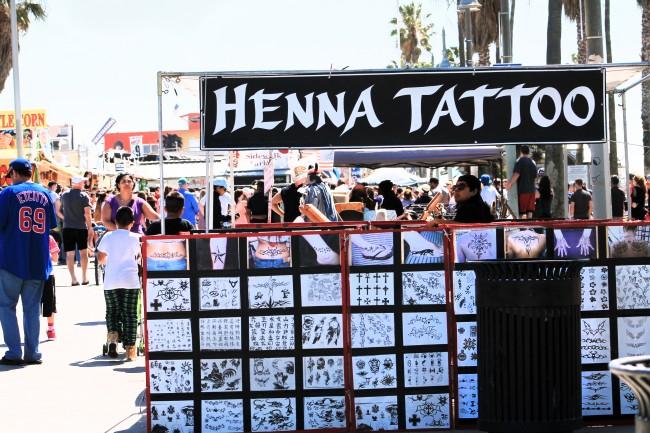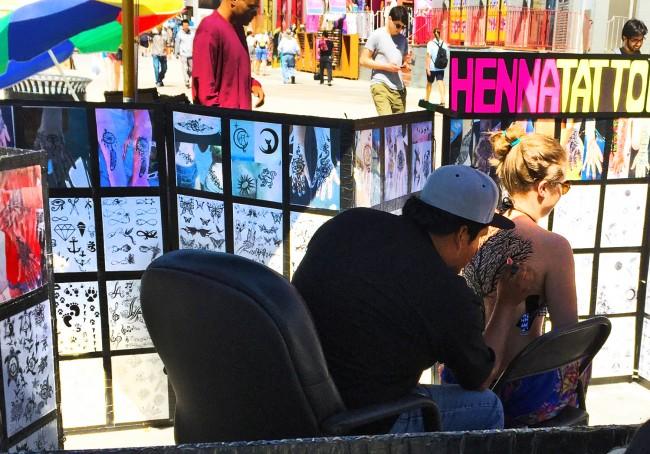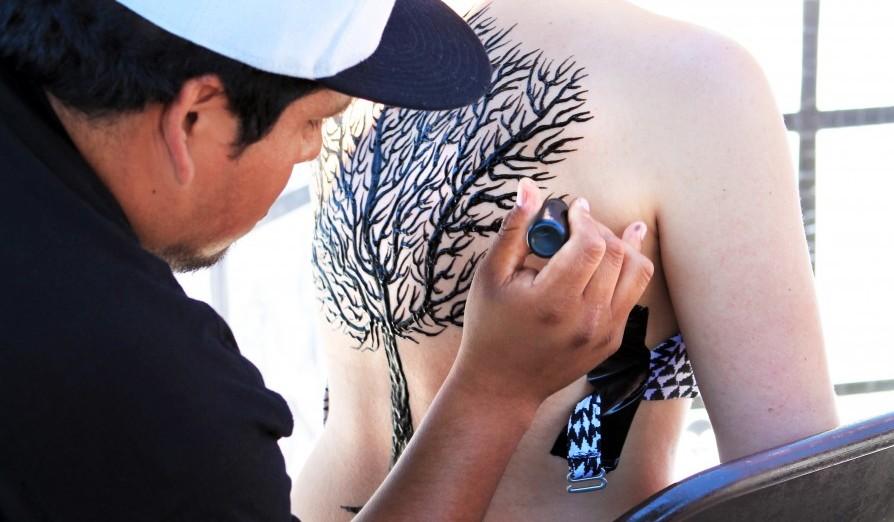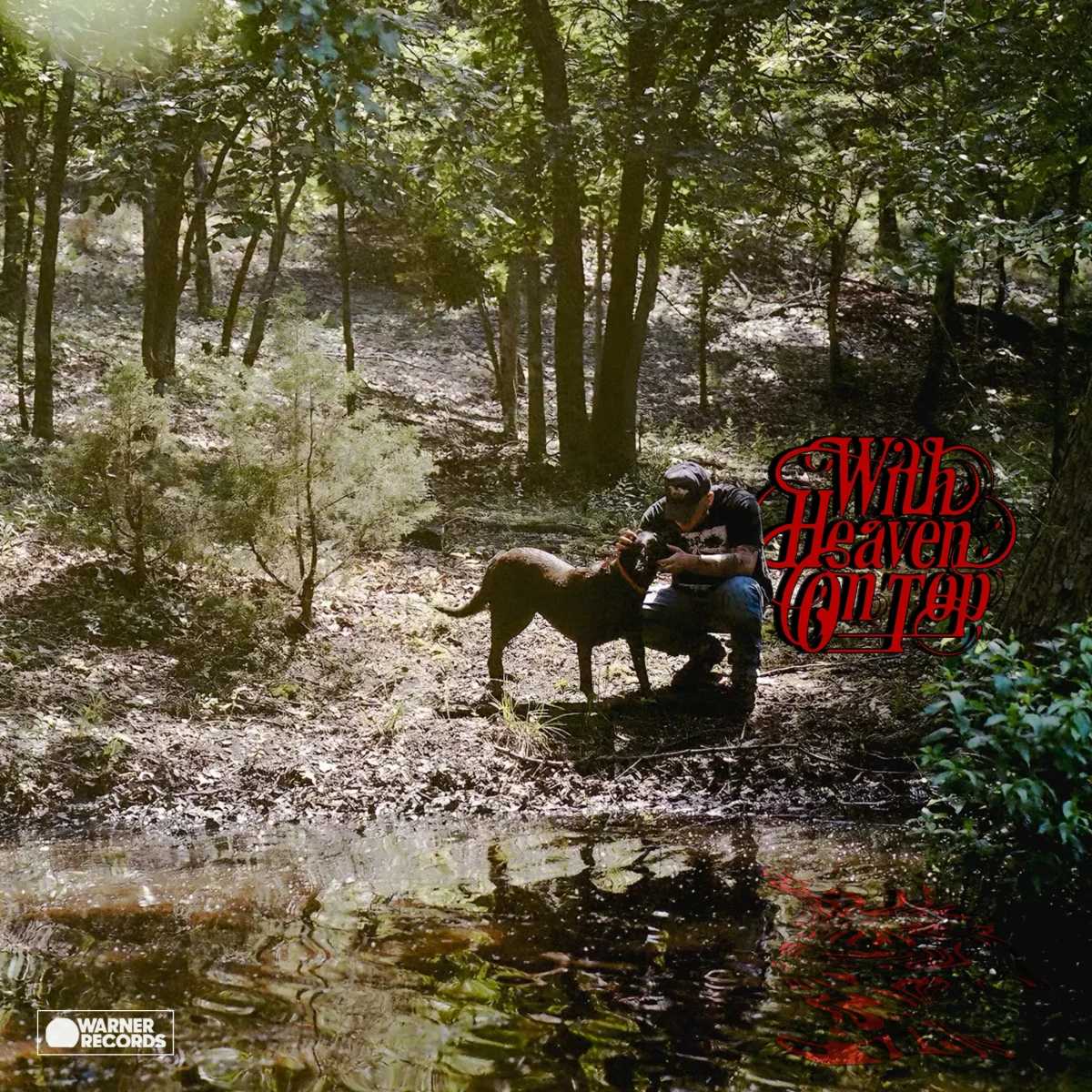The Food and Drug Administration is now warning that the temporary tattoos referred to as “black henna” potentially contain toxic chemicals and ingredients that can leave a permanent mark on the skin.
Grasping a small plastic bottle packed with dark black paste, a Venice Beach henna artist draws a large tree, made up of various lines, on the back of a young woman.
“I decided to get a henna tattoo because I like the fact that I don’t really have to commit to anything serious,” said Brittany Heart, a Venice Beach local. “I’m getting this tree because I think they are strong and beautiful. But if this was permanent, my parents would kill me.”
Especially as the weather changes into the hotter months, many people find themselves getting temporary tattoos to keep up with the trend or to simply have a little fun.
Some of the most common places to get these temporary pieces of artwork are in small tattoo parlors and in tourist locations such as the Venice Beach boardwalk.

“The henna tattoos we give here start off dark black and remain dark black. They will not fade,” Christian, a local Venice Beach artist said. “Most temporary artwork you get wears off in a couple days, but the ones I do, well they last for weeks. You definitely get your money’s worth here.”
What most people aren’t aware of is that the paste being placed on their skin is not actually authentic henna, but a chemical makeshift paste of hair dye and various other potent ingredients known as “black henna.”
“I heard of black henna in an article way back when,” Ryan Collins, a Los Angeles local and father of three said. “I wouldn’t really think twice if my kids put those little kid temporary tattoos on, but after reading the stories about what that black henna stuff could do, I freak out about anything chemical related being placed on their skin.”
Natural henna is derived from the leaves of a flowering plant known as the Lawsonia and crushed into a powder.
Historically, people that use the henna powder as a stain will mix the crushed leaves with a liquid and when applied to skin, the color starts off staining orange, but after a few days, it darkens into a reddish-brown shade.

According to the FDA, one very dangerous ingredient found in “black henna” is called Para-phenylenediamine or PPD, which gives the paste the black color, allows it to remain dark and last longer.
Black henna goes on pure black, dries pure black and can last anywhere from a few days, to a few weeks or may never truly leave.
PPD is attained from coal tar that is only permitted to use as a hair dye and is always accompanied by a large warning label about the side effects and allergic reactions that may occur.
“FDA’s safety information report program, MedWatch, has received a number of reports filed by temporary tattoo goers who suffered from severe and lasting skin reactions after these black henna tattoos were applied,” said Lauren Sucher, Press Officer for the U.S. Food and Drug Administration. “Some reported skin reactions including blisters, redness, altered pigment of the skin, increased sensitivity to light and even permanent scarring.”
If you or someone you know has a reaction to a temporary tattoo such as “black henna” contact MedWatch, FDA’s problem-reporting program, on the Web or at 1-800-332-1088, or file a MedWatch Voluntary report online.






